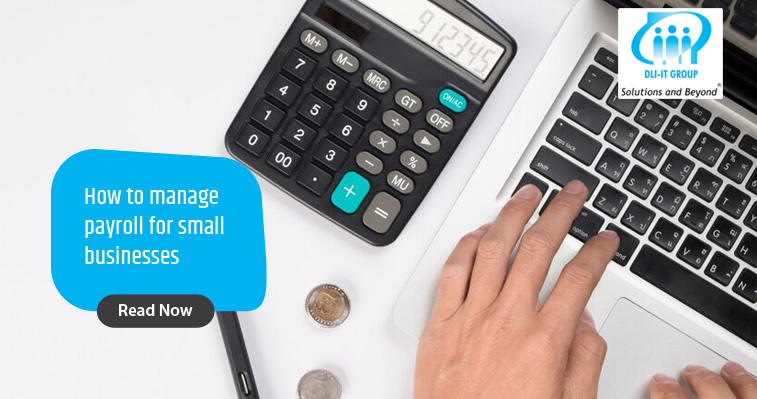Payroll management is of prime importance in running any organisation effectively. However, in small businesses, it acquires much significance because of limited space and strict budget availability for business owners who spend too much time and bother over processing their payrolls.
It is at this stage that the integration of the Payroll System along with HRMS is of high impact because of simplicity, accuracy, and efficiency with regard to processing the payroll activity.
Payroll for small businesses
Small business owners wear multiple hats, such as managing day-to-day business and employee satisfaction. Payroll is one of the toughest tasks, which requires various calculations and relies on tax compliance.
Besides, timely payment of salary creates errors and delays, causing dissatisfaction among employees. An HRMS system with a strong payroll feature would help streamline such procedures smoothly to run small businesses and, accordingly, follow labour legislation.
Streamlined Payroll System and Processing
An HRMS system can drastically reduce payroll work because it takes care of everything payroll-related. From salary and deduction calculations to tax filing preparation, the chance for mistakes is avoided at every stage.
The greatest advantage of small businesses comes in this form of automation, leaving much less work for HR staff to save precious time.
These make many payroll computations easy, including overtime, leave encashments, and bonuses, among other things. Others have variable payment schedules that fit pretty well within a small business.
One is able to automatically pay computer tax, and hence, everything is done according to the laws of the locality. Hence, there will not be any penalties or tussles.
Easy Compliance
Legal demands and tax procedures form part of payroll management. Small businesses are unaware of many legal changes that have been put in place and can become non-compliant. The HRMS system updates all rules and applies them to payroll calculation.
Tax filings or running any employee benefit scheme, as well as deductions arising from legal obligations, all become absolutely smooth under an HRMS.
This further avoids legal controversies; as employees begin to rely more confidently on these systems for smooth time payment, trust builds up that will allow a small enterprise to keep up an excellent atmosphere around there.
Scalability of increasing business
While small businesses grow, so does their workforce, and with it, there are payroll complexities. Methods that may have been workable for even a few employees become clumsy and error-prone at any larger number. The HRMS system is scalable- the whole payroll process will then match the growth of your business.
This enables it to go from hiring to handling various payroll designs. For instance, an HRMS can accommodate the various elements of wages, allowances, and benefits depending on an employee’s position. That’s why it is so helpful for small businesses looking forward to achieving sustainable growth.
Increasing Employee Satisfaction
Salaries paid on time are very basic to the satisfaction of the employees. Errors and delays in payroll may make employees dissatisfied, which, in turn, may increase the chances of low productivity and possible employee turnover. An HRMS with a Payroll System ensures that accurate payments are made on each date in every month.
Advantages of employees include the self-service portals whereby an employee could view his payslip details or tax documents or even the balance of his leaves. A transition like that builds up trust, and employees will have even more basic answers to all the queries within HR.
The long-term success of any small venture depends very much on developing the same kind of trust as well as retaining talented members, thereby making HRMS a great investment.
Data Security and Privacy:
Payroll Information includes sensitive data about employees, including salaries, tax information, and personal data. Small business entities do not have the infrastructure to ensure such data is securely stored and managed.
HRMS systems are designed with strong security measures in place that ensure payroll information is encrypted and accessed only by authorised personnel.
In addition to security, such systems often come with backup features that will recover data in case of unforeseen events. For small businesses, the protection of payroll data is not only a matter of compliance but also reputation and gaining the trust of their employees.
Cost-Effectiveness and ROI
Small business enterprises operate on tight budgets. An investment in technology seems like a cost addition to the bottom line, but an integrated payroll system saves money in the long run with HRMS. These systems save money on penalties, manual labour, and external services because of automation, reduced errors, and efficiency.
Moreover, the time saved through the automation of payroll operations can be utilised by business leaders and HR organisations for strategic initiatives that further add value to productivity. Most HRMS providers offer customised pricing plans that make investment possible for businesses of all sizes.
Intricacies of Integration with Other HR Functions
In reality, this is not an individual job but rather very closely connected with other HR activities such as attendance tracking, leave management and performance appraisals. All of these activities will be integrated through an HRMS system. Therefore, the payroll computation will be comprehensive and precise.
For example, leave deductions, overtime pay and bonuses are automatically aligned with the payroll. There is more manual adjustment needed. In addition, this integration will not only bring efficiency but insight into the performance or productivity of employees.
To small-sized businesses, a unified system aligns with the operations of HR and hence boosts up the decision-making of an organisation.
Flexibility as related to Cloud-Based Solution:
Most modern HRMS systems are cloud-based, which is very helpful to small businesses. Cloud-based systems give flexibility so that payroll and HR functions can be managed from any place at any time. This has been especially helpful in the modern dynamic work environment.
With a cloud-based payroll system, business owners shall have payroll data and can make reports and process remuneration from anywhere. Hence, the possibility of disruptions affecting the payrolls is lower as the disruptions are pretty unpredictable.
Moreover, these types of cloud-based solutions will not require highly elaborate hardware; hence, this may prove to be an economical solution for small businesses.
Reporting and Analytics
An HRMS system provides full reporting and analytics to understand trends in payroll, cost of employees, and tax liabilities. All this will allow the small business owner to decide on budgeting, which can be optimised or areas to reduce cost.
With such information, advanced analytics can predict payroll costs, therefore preparing the business for future financial needs. The above information is helpful to small businesses as it provides access to financial planning and also ensures the right utilisation of resources.
Conclusion
It must face issues in handling payroll management, whereas, in HRMS, the integrated payroll system is quite robust and thus significantly easier. From automation of calculations and compliance to further improvement in employee satisfaction through data security, an HRMS system is quite worthy for small businesses.
An HRMS investment would help the small business owner save time and make fewer mistakes by focusing on more growth-oriented initiatives. Scalability, integration, and accessibility in the cloud are also assured to meet small business needs in order to maintain competitiveness and comply with relevant regulations.

